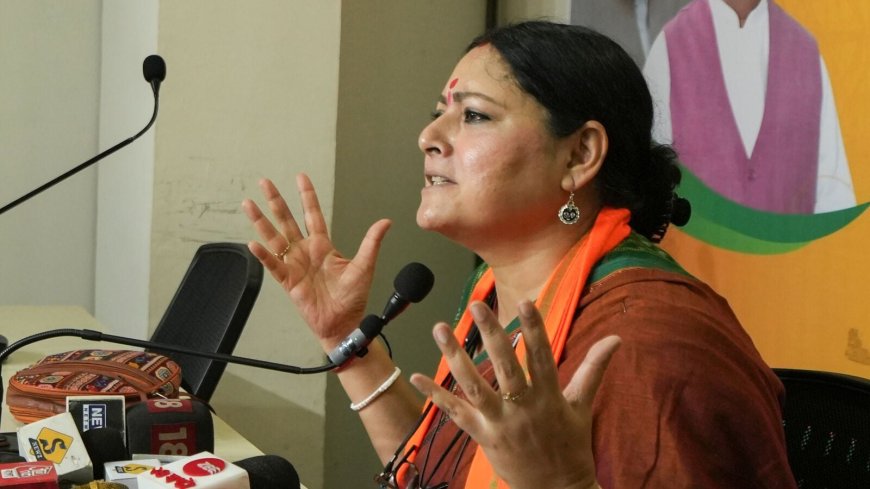Sharmishta Panoli's arrest: Mamata govt only works for Muslims, claims BJP leader Agnimitra Paul, thanks Kangana Ranaut
Kolkata Police arrested Sharmishtha Panoli from Haryana's Gurugram on May 30. She is a law student in Pune, Maharashtra. May 31, Panoli was produced before the Alipore Court in Kolkata, which remanded her in judicial custody for 14 days.

Sharmishta Panoli's arrest: Mamata govt only works for Muslims, claims BJP leader Agnimitra Paul, thanks Kangana Ranaut
Breaking News, Daily Updates & Exclusive Stories - dharmyuddh
In a controversial twist surrounding the arrest of Sharmishta Panoli, West Bengal BJP leader Agnimitra Paul has alleged that the Mamata Banerjee-led government is biased towards Muslims. These claims came swiftly after the shocking news of Panoli’s detention surfaced, igniting a heated debate across various political and social platforms.
Arrest Details
Kolkata Police apprehended Sharmishta Panoli from Gurugram, Haryana, on May 30. A law student based in Pune, Maharashtra, she has now found herself at the center of this unfolding political drama. The very next day, May 31, she was presented before the Alipore Court in Kolkata, which ordered her to be remanded in judicial custody for 14 days. This intense media coverage has not only drawn attention to her case but has also spotlighted ongoing allegations regarding the state's governance.
BJP's Allegations
Agnimitra Paul did not hold back when he claimed that the Mamata government primarily serves the interests of the Muslim community. “The arrest of Sharmishta Panoli raises questions about the state's selective enforcement of law and order,” he stated. Paul also expressed gratitude towards Bollywood actress Kangana Ranaut for her vocal support on this issue, referencing her call for equal treatment under the law, irrespective of religious affiliations.
Political Repercussions
The BJP's claims have incited considerable backlash from members of the Trinamool Congress (TMC), with party spokespersons arguing that the allegations are politically motivated. TMC insists that the government applies the law impartially and is committed to ensuring justice for all communities. The political tug-of-war surrounding this incident raises broader questions about communalism in Indian politics, with both parties vying for public sentiment.
Public Reaction
The public response has been mixed, with some supporting the BJP's claims while others view them as an opportunistic attempt to polarize voters ahead of upcoming elections. Social media platforms have become battlegrounds for opinions, with hashtags like #JusticeForSharmishta gaining traction among supporters. As discussions escalate, many are calling for impartial investigations into the allegations raised.
Conclusion
As the case of Sharmishta Panoli unfolds, it not only brings to light concerns about individual rights and freedom of expression but also reflects the ever-increasing rift between political factions in India. The ramifications of this arrest could extend well beyond the courtroom, shaping public opinion and influencing future electoral strategies. The question remains—will justice prevail, and what impact will this have on the political landscape in West Bengal?
For more updates, visit dharmyuddh.com.







